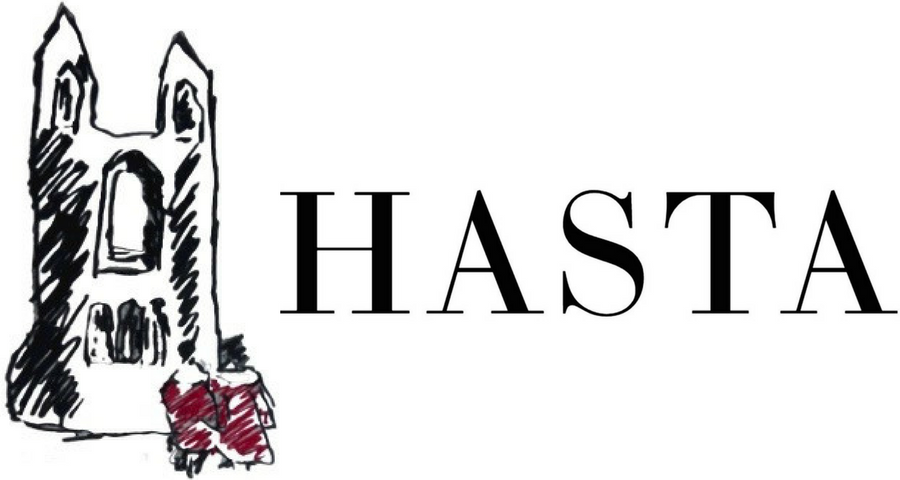Marx in London! – A Capital Night at the Scottish Opera
By Lucien Willey
Capital (Noun): 1. Wealth in the form of assets. 2. A town or city that functions as the seat of government. 3. (colloquial expression - UK): Very good, excellent. This triple-meaninged word was to be the original title of Jonathan Dove’s new opera Marx in London! , a comedic farce about the radical thinker who wrote Das Kapital and co-wrote The Communist Manifesto that takes place over the course of a single day in 1871. Composed for, and having premiered at the Stadttheater Bonn, this opera’s witty, English-language librreto makes for enjoyable viewing. While supposedly – according to the programme, at least – it took the German audience about twenty minutes to realize they were allowed to laugh at it, the audience at the Festival Theater in Edinburgh were much quicker on the draw, with waves of laughter rolling from the stalls to the dress circle almost as soon as the curtain rose, introducing us to the Prussian spy (Jamie Macdougall), our semi-narrator, whose leitmotif of typewriter clacks and a bassoon at times felt almost cartoonish.
Jamie Macdougall as The Spy in Marx in London! Photo credit: James Glossop.
Marx himself is written as a troubled baritone, played with suitable pomp, ego, and drama by Roland Wood. He drinks, spends money he doesn't have, flirts with his housemaid, refuses to acknowledge his alleged illegitimate son, and spends most of the second act trying to recover his wife’s silverware, which he lost while attempting to pawn it to pay off his debts. This personal chaos is furthered by Freddy (William Morgan), Marx’s supposed illegitimate son via the aforementioned housemaid, a young gunsmith seeking the truth behind his abandonment as a child. He spends the end of the first act and most of the second flirting with Marx’s daughter Tussi (played with brilliant, theatrical, flounce by Rebecca Bottone), before their innuendo-laden portion of the libretto is interrupted by the shocking, dramatic, and classic operatic revelation that they may, in fact, be half siblings.
William Morgan as Freddy and Rebecca Bottone as Tussi Marx in Marx in London! Photo credit: James Glossop.
As Marx’s debts pile up, in swoops Alasdair Elliott’s Friedrich Engels, an almost Wagnerian heldentenor who appears in a blaze of fanfare to save Marx from his debts again and again – at one point rolling onto the stage on a penny farthing tricycle throwing checks around. We don’t really see his justification for his support of Marx until the second act, when Marx eloquently destroys the hypocritical, plagiarizing, preening Italian anarchist Giuseppe Melanzane, winning a prize to cover his debts, which he spends instead to cover the drinks cost of a group of workers at the pub in which the competition was held.
Alasdair Elliott as Friedrich Engels in Marx in London! Photo credit: James Glossop.
At its core, though, despite its characters being radicals and revolutionaries, this opera was a relatively simple comedy about a bourgeoisie family living in London slightly beyond their means. There are only two scenes that directly mention Marx’s infamous politics at all: the aforementioned speech in the second act, and a dream sequence at the end of the first act where the workers of the world sing of their impending liberation, with representatives of future protest movements such as suffragettes, civil rights protesters, AIDS activists, and striking NHS nurses. This is about the limit of the opera’s politics, as it otherwise sticks to a more traditional comedic opera portrayal of messy family dynamics. In fact, I suspect this opera would still be quite good if they used a fictional set of bourgeoisie academics in the same time period with no mention of politics, which is quite an achievement. How many historical operas, after all, can say that they rely on their own score and libretto for their worth, as opposed to our knowledge of the history behind their characters and events?
The set design for this opera by Yannis Thavoris was very well done, ranging in complexity from Marx’s living room, which would go from comfortable to sparse when the furniture was collected by debt collectors, to the streets of London and the great reading room of the British Museum. Many of the sets used sepia-toned illustrations as their backdrops, adding additional atmosphere to this portrait of London. Perhaps the best piece of this set design comes near the end of the opera, as Marx, his family, Freddy, and Engels take in a view of London during a picnic in the park. Before the curtain falls, the illustrated backdrop of London slowly fades into the city’s contemporary skyline, with the skyscrapers going from ghostly to domineering as the Victorian chimneys fade away.
Roland Wood as Karl Marx and Rebecca Bottone as Tussi Marx in Marx in London! Photo credit: James Glossop.
All in all, this production from the Scottish Opera was very well put together, and an excellent premiere of this opera before a native English-speaking audience. I entered with high expectations, and found those met and then some. Its run in Scotland is over now, but if you ever have a chance to see it at another theatre, I highly recommend it. Opera lovers of the world, unite! You have nothing to lose but the cost of a ticket!




